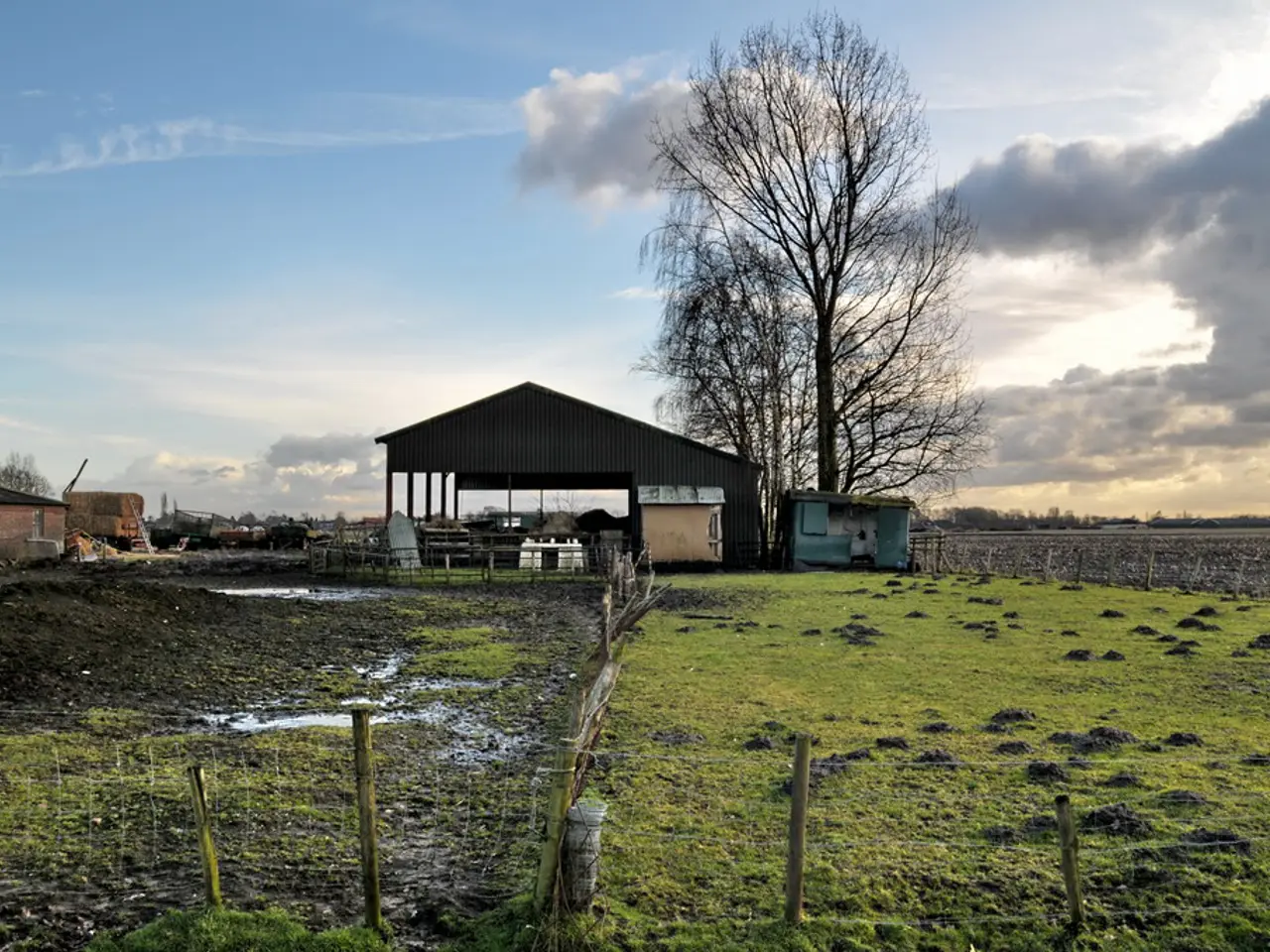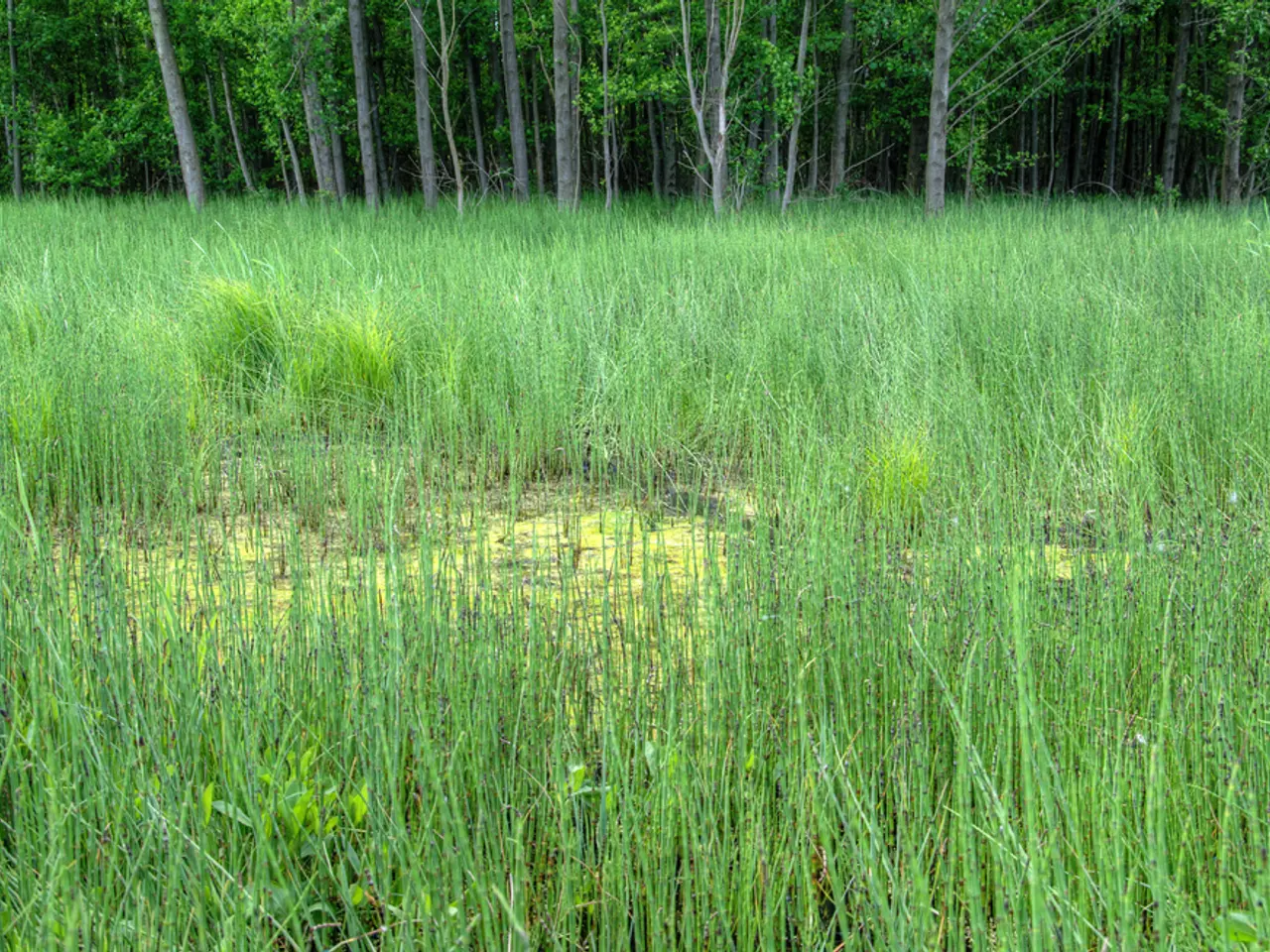Unfamiliar Term: Biodiversity Net Gain - A Concept Most People Seem Unacquainted With
In England, the Biodiversity Net Gain (BNG) policy has become a crucial aspect of planning permission applications for homeowners and small builders. This policy, aimed at ensuring that development leaves the natural environment in a better state, was made mandatory for most developments in 2024 [1].
Under BNG, any new housing or construction project must improve the natural environment, not just for compliance, but for the benefits of a greener building future [2]. This means that when applying for planning permission, homeowners and small builders must demonstrate how their project will increase or create natural habitats either on-site, off-site, or through purchasing biodiversity credits [1].
The potential benefits for landowners and rural homeowners from BNG are increasingly clear. For instance, BNG enables farmers and landowners to diversify their income streams, particularly from non-productive land [5]. Moreover, demand for BNG units is strong and growing, with a forecast of over 91,000 units by 2035 and a retail market value estimated at £3 billion [6].
However, a recent BNG Industry Report revealed that public awareness of BNG scores just 3.1 out of 10 [3]. The report emphasizes the need for broader education and awareness about BNG due to its low public understanding [7]. Many people assume BNG is only relevant to large developers, but this is not the case [8].
The low awareness of BNG could pose problems for homeowners and homebuilders. Ignorance of BNG responsibilities or opportunities could lead to delays, increased costs, or even rejection of planning applications. For instance, the complexity and cost associated with preparing and submitting Biodiversity Gain Plans, and the need to invest in biodiversity measures such as green roofs or habitat enhancements, can add to the overall cost of a project [4].
Ian Hambleton, Founder & Director of Biodiversity Units UK, expresses pride in being part of the evolving BNG movement, helping developers meet their obligations and celebrate environmental improvements [9]. The report features quotes from farmers and landowners using their land for Biodiversity Net Gain, highlighting it as a new revenue stream [10]. One respondent noted the importance of BNG for farmers due to the loss of revenue streams such as SFI and new tax rules.
As the BNG policy is currently in full force, it's essential for homeowners and small builders to understand their responsibilities and seize the opportunities that BNG presents. By doing so, they can contribute to a greener future while ensuring their projects are compliant and cost-effective.
[1] Gov.uk: Biodiversity Net Gain [2] Defra: Biodiversity Net Gain [3] BNG Industry Report 2023 [4] RICS: Biodiversity Net Gain [5] FarmingUK: Biodiversity Net Gain [6] Property Week: Biodiversity Net Gain [7] Defra: BNG Awareness Campaign [8] Planning Resource: BNG Public Awareness [9] Biodiversity Units UK: Press Release [10] Farmers Weekly: BNG Case Studies
- Homeowners and small builders in England should familiarize themselves with the Biodiversity Net Gain (BNG) policy as it is now mandatory for most developments.
- When preparing planning permission applications, it's crucial for homeowners and small builders to demonstrate how their project will contribute positively to the natural environment, either directly or through biodiversity credits.
- One significant benefit of BNG for landowners and rural homeowners is the potential to diversify income streams, particularly from non-productive land.
- Ignorance of BNG responsibilities or opportunities could lead to delays, increased costs, or even rejection of planning applications, as the complexity and cost associated with BNG can add to the overall project cost.
- To address the low public understanding of BNG, the government has launched a BNG Awareness Campaign, emphasizing the importance of education and awareness about this policy for homeowners and small builders.








